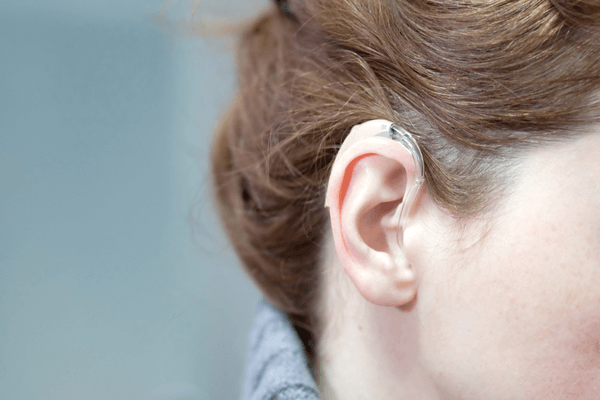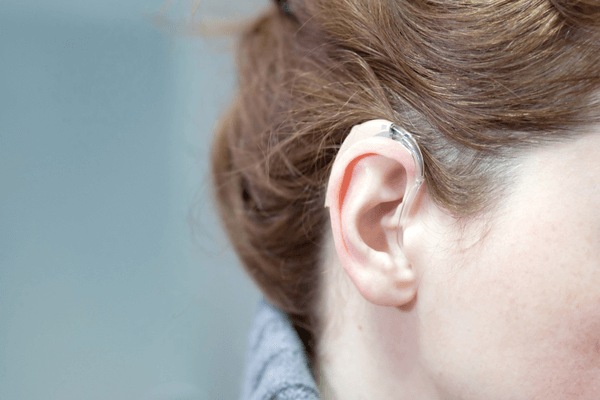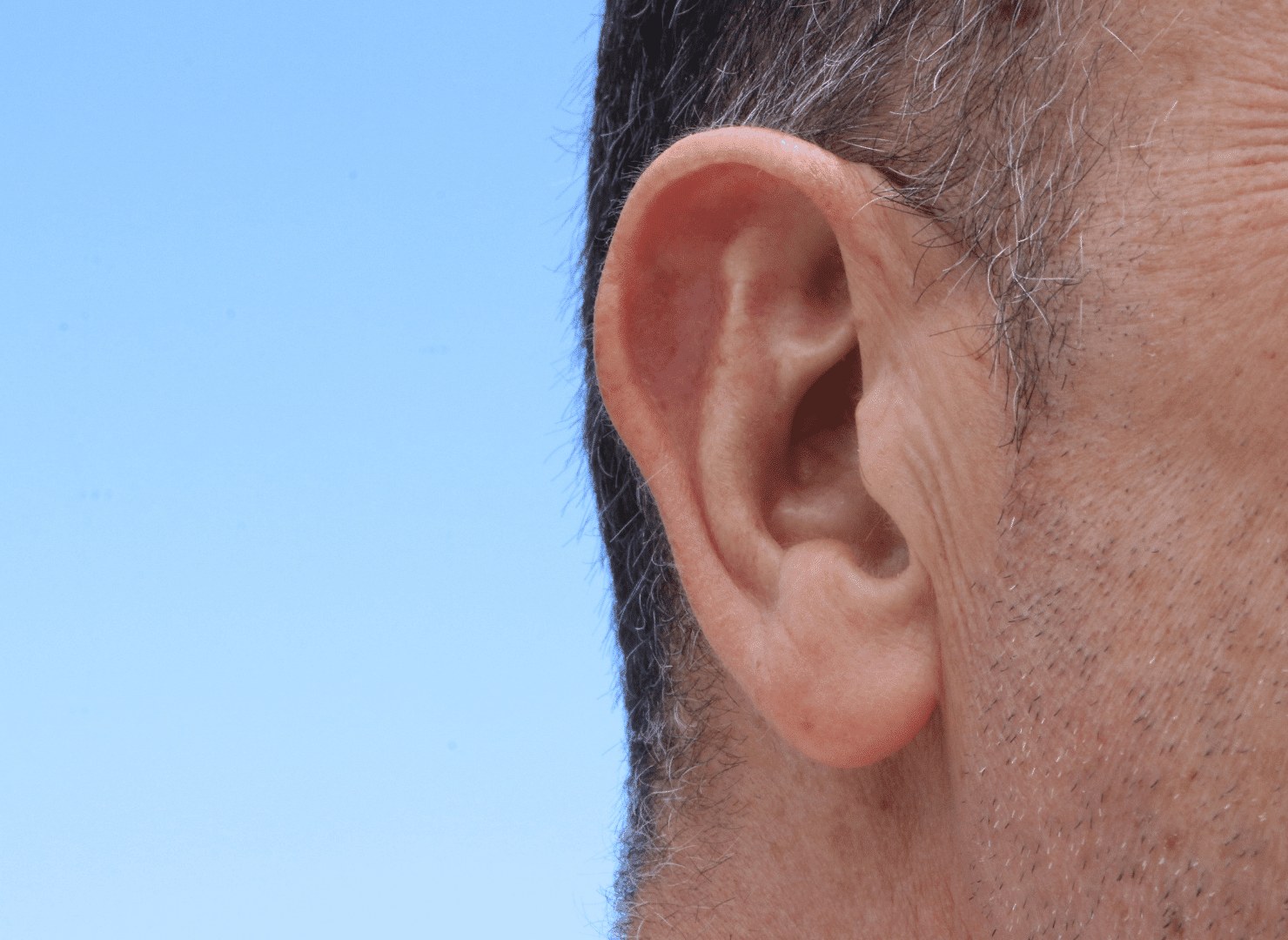Hearing aids drastically increase Quality of Life (QOL). Improved conversations, more active social life, and greater cognitive functions are just a few of the favorable side effects. If this one device can change so many lives, why is insurance coverage for hearing aids riddled with complexities?
Getting Your Hearing Aids Covered by Insurance
Most insurance companies do not fully cover hearing aids. There are specific situations that allow for complete coverage (like a birth defect or a sudden trauma), but the majority of insurance policies have limited or no coverage for speech, language, or hearing treatment. The good news is that some insurers provide partial coverage through deductibles, discounts, or buy-in programs. All of these programs can help you save money. It’s not uncommon for insurance policies to provide a set amount for reimbursement, lowering your out-of-pocket cost.
Some insurers partner with specific hearing aid companies and provide deep discounts if patients purchase through the insurer. Outside of hearing aids, most insurers cover trips to the audiologist for things like testing and fittings. Even if you do have some coverage, you’ll want to understand how often benefits can be used. Certain plans renew yearly, while others ask subscribers to wait 3-5 years to re-up on their incentives. Check with your provider to see if they have a hearing aid partner, so you can receive a pair of hearing aids at a lower cost.
How Do I Find Out if My Hearing Aids Are Covered Through Health Insurance?
The easiest way to find out if your hearing aids are covered through your insurance company is to call their toll-free number listed on the back of your insurance card. Since all companies are different and coverage varies depending on the plan, you’ll want to have your specifics such as policy ID, group number, and policy holder’s name at the ready. This will allow your insurance company to give you accurate information about what is and is not covered by your policy. They will also let you know if there are requirements you need to meet such as age or circumstance leading to hearing loss.
States That Require Hearing Aids To Be Covered by Insurance
Did you know that some states actually require insurers to cover (fully or partially) the cost of hearing aids? In fact, there are 24 states! For the most part, these states cover hearing aid costs for children, but 5 states extend this benefit to adults as well.
Arkansas
Arkansas offers $1,400 per hearing aid every 3 years.
Connecticut
Connecticut gives $1,000 every 2 years.
Rhode Island
Rhode Island covers $700 per ear every 3 years for adults 19 and older. They offer $1500 per ear for individuals under 19.
New Hampshire
New Hampshire gives $1,500 per hearing aid every 60 months.
Benefits of Choosing Insurance Plans With Hearing Aid Coverage
Before choosing your insurance company and membership plan, the main things to consider are costs and benefits. Do you anticipate purchasing a new pair any time soon? Do you find yourself needing tune-ups for your current pair? Does it feel like your hearing is getting worse? Answers to these questions should provide the necessary framework to make a sound decision.
Savings on the Cost of Hearing Aids:
Some Insurers provide a stipend or allowance to go towards the cost of hearing aids. Some offer a discounted price on particular brands of hearing aids. Other insurers may reimburse you partially after you purchase hearing aids.
The Portion or Full Coverage:
While insurance companies do not usually fully cover the cost of hearing aids, any discounted price is good for your wallet. You’ll want to weigh any discounts against increased monthly insurance costs to ensure you are still saving money.
Peace of Mind:
Opting in to an insurance plan that covers hearing aids can help you navigate uncertainty with less stress. Like all health plans, hearing aid insurance reduces the risk you take on.
Having an insurance plan gives you the peace of mind to know that if something goes awry, you will not have to completely pay out of pocket. You wouldn’t be the first person to misplace your pair of hearing aids, forget them at your vacation rental, or accidentally submerge them in water for too long. Having insurance makes these situations less serious and cuts costs for you.
Employer Fully Covers Health Plan:
Don’t forget to check with your employer! Many employers offer add-ons or more costly insurance plans that they will then subsidize.
Government workers, educators, and veterans are often offered better options for health plans, so don’t be afraid to ask for what is rightfully yours.
Some employers also offer Flexible Spending Accounts (FSAs), which allow you to pay for hearing aids with pre-taxed income. Paying with an FSA or HSA allows you to trim overall out-of-pocket costs.
Why Do People Choose Insurance Plans Without Hearing Aid Coverage?
You may not be convinced to ante up for an insurance plan with hearing aid coverage, and we don’t blame you. If you already have a pair of hearing aids that you love and know your insurer won’t cover the costs of repairs, why pay a higher monthly cost for coverage you can’t use? Insurance plans change frequently, even year-to-year in some cases, so you may not want to buy into a plan that will alter coverage and leave you in the lurch.
High Cost of Coverage:
On average, Americans spend $438 monthly on their health insurance. If you are someone who is retired and no longer pulls in the same income as when you worked - that cost may seem especially daunting.
The amount spent directly connects to the insurance provider and plan, so in theory, the more that is covered in your insurance plan, the more you will pay monthly for the coverage
Overall Savings:
If you do not utilize all the coverage you pay for, you are in a sense losing money. However, you never know when you may need that coverage.
When it comes to health, we often have to run a cost analysis for ourselves to determine what amount of coverage will be worth it for our own hearing health.
Less Documentation Required:
We have not even mentioned the daunting task of insurance documentation. Any time you deal with insurance, there tends to be a lot of paperwork involved. The paperwork is often complicated and may even require a sign-off from your doctor or audiologist.
If your insurance plan requires you to pay for hearing aids up front, you might need to submit paperwork to receive reimbursement. That's extra time out of your day.
No Dealing with Insurance Denials:
When you go through insurance, you risk dealing with denials. All hearing and health-related purchases and doctors visits need to be approved and your insurance company gets the final say on whether your hearing aids qualify for a payment.
This gets tricky if the denial comes after the purchase or appointment. You can end up being the one who has to pay out of pocket.
Financial Assistance for Hearing Aids
No insurance coverage for hearing aids? You still have options. There are a few assistance programs - both government-sponsored and otherwise- that can help you out.
Paying with Medicare:
Medicare is one option. Unfortunately, Medicare gets a bad rep when it comes to hearing aid coverage. There's one exception to this; if you fall into a Medicare Advantage plan, you may have better coverage.
Medicaid Coverage:
Medicaid coverage can be a little more reliable than Medicare, but it does vary state-by-state. The rules and regulations surrounding Medicaid shift frequently. if you're planning on going through Medicaid, you'll want to do your homework and ensure you're covered.
Veteran Affairs:
Did you know Veteran Affairs is the number one purchaser of hearing aids?
If you are a veteran with hearing loss, you can contact your local agency to find out what options you have. You're one step ahead if you already are registered with your local VA agency!
Easter Seals:
Another option to look into is the Easter Seals, a non-profit that offers disability services and support. There are locations all across America. Easter Seals specializes in helping seniors, veterans, and caregivers.
Grants for Hearing Aids:
If all else fails, you can apply for a grant to receive funding for your hearing aids. This can be a time-consuming way to pay, but there can also be great rewards.
Check places such as the Travelers Protective Association, Starkey Hearing Foundation, Miracle-Ear Foundation, Lions Club International, Foundation For Sight & Sound, or National Hearing Aid Project to see if you are eligible to apply for a grant.
Why Aren’t Hearing Aids Covered By Insurance?
So, why are hearing aids so often not included in your insurance policy? To get the answer, you will have to think like the insurance company. To them, hearing aids are “elective,” meaning they are not a medical necessity. If you are one of the millions of Americans with hearing loss, you may disagree with this assessment. Unfortunately, until insurance companies change their policies, you will be stuck paying for the hearing aids you need. Many insurers also see hearing loss as an eventuality, not a possibility. Meaning, they believe hearing loss is a natural part of aging, so if they were to cover everyone’s hearing aids, they would end up losing money. It affects their bottom line, so they pass the cost on to you.
How Much Are Hearing Aids Without Insurance?
We have covered how to pay for hearing aids, but exactly how much should you expect to spend? Hearing aids (without insurance coverage) can range from $1,000 to $6,000 per aid, making it $2,000 to $12,000 for a pair. The large range is due to the level of technology and specialization available, so your price will depend on your needs.
Paying for Hearing Aids Without Insurance
Paying for hearing aids without insurance does not have to be scary. Do your research on the best hearing aids for your budget, then you can come up with a price range that is reasonable for you and determine the best payment plans.
Whether it is waiting and saving, applying for grants, exploring loans, or even asking a loved one, it may be simpler than you think to purchase hearing aids without insurance.
Popular Options for Affording Hearing Aids
Some of the most popular ways to afford hearing aids outside of insurance include health credit lines, loans, or even discount programs through specific hearing aid providers. Many companies offer different financing options, so you can find a hearing aid payment plan that fits your budget and financial goals.
Care Credit:
f you haven’t heard of CareCredit, you may be missing out on a helpful payment method. CareCredit acts as a credit card where you can spend money, but it can only be used for healthcare costs.
It is accepted by over 75,000 providers, and the best part is that it is interest-free for short-term payment plans and low-interest for longer-term plans. There are no annual fees or upfront costs, so this can be a great option if you are feeling lost as to where to get funding.
Loans:
Your next avenue may be to take out a loan. Depending on interest rates and the loan provider, the repayment methods may be quite reasonable. However, with loans comes the risk of inability to repay interest or even denial of a loan.
Applicants are required to possess a particular credit score in order to receive loans, so this can be an obstacle. Homeowners do have the ability to take out a home equity line of credit in order to purchase hearing aids.
Always be careful when taking out loans! Do not take on more risk than you are able to handle.
Affirm:
If you are purchasing your hearing aids through Audicus, there is a fantastic option available called Affirm. Affirm allows you to split hearing aid costs over 6, 12, or 18-month spans.
This gives you more time to save money and a much smaller up-front cost. Monthly costs can be as low as $39!
Allegro:
In some situations, you might want to finance your hearing aids but run into issues with approval. This is a common scenario if you have bad credit.
Financers like Allegro can make hearing aids more accessible If you have a low credit score. Fill out an application online to get approved. If you're eligible, you can pay for your hearing aids in small increments over time, until your full balance is paid off.
Why It Can Make Sense to Purchase Your Own Hearing Aids Even With Insurance
For those who do have insurance, buying hearing aids independently may still be your best option. Insurers hold the power when it comes to what type of coverage they will provide for specific makes, models, brands, and categories of hearing aids. If you already know which pair will be best for you, it may make sense to forgo insurance coverage in order to get exactly what you want. Bypassing insurance could save you the time and headache of submitting claims. Weigh your options to find what will work for you, not your insurer.
How to Pay for Hearing Aids When Insurance Doesn't Cover You:
With the relatively high cost of hearing aids, it is no wonder paying for the devices is a top concern. If your insurance company will not pay fully or even partially, look into the possibility of changing up the payment structure. Many hearing aid companies offer deals that could work for you.
Paying Monthly for Hearing Aids:
Many hearing aid companies offer the possibility of spreading costs over a set amount of time. Paying monthly for hearing aids can help keep costs manageable. If you can make payments over 6, 12, or 18 months, that reduces upfront costs as well as amounts necessary each month.
Renting and Leasing Hearing Aids:
Like with cars, hearing aids can also be rented or leased. This means that you would never outright own the pair of hearing aids, but would instead pay a monthly rate to keep the devices for a set time.
If you are someone who likes to frequently evolve with the newest technology or someone who wants to try out hearing aids before purchasing them, renting or leasing may be for you.
Hearing Aid Memberships:
Companies like Audicus also offer up the possibility of hearing aid memberships. With these programs, you pay a set rate (as little as $39) each month and receive certain benefits, such as a new pair of hearing aids every 18 months, support whenever you need it, and insurance for any damage done to your hearing aids.
Buying Hearing Aids Upfront:
The most straightforward buying process is often one where you buy hearing aids upfront. This does require that you have enough money to pay in full, but you won’t have to worry about remembering to make payments in the future.
How Do Online Hearing Aids Fit Into Insurance?
Many people without hearing aid insurance choose to go the unconventional route and purchase hearing aids online - the Audicus business model. While a visit to the audiologist is still necessary to receive an audiogram, you can cut costs by skipping the traditional model and buying a pair online.
Frequently Asked Questions About Insurance for Hearing Aids:
I have Medicaid. Will they pay for my hearing aids?
It is not guaranteed that Medicaid will pay for your hearing aids. Their coverage is dependent on the state you live in and if you meet all their requirements. Check with your local agency to determine what is covered in your area.
Will Medicare reimburse me for my hearing aids?
Medicare does not pay for hearing aids or any doctors’ appointments related to the hearing aids. Some hearing tests are covered, but you will need to check with your doctor and Medicare representative. Medicare also does not pay for vision or dental work.
I can’t afford to pay thousands for hearing aids. What are my other options?
If you are unable to afford costly hearing aids, first consider switching the brand or type of hearing aid. There may be a lower cost but equally effective option for you on the market. Consider enrolling in a payment plan that spreads out the cost of the hearing aids. Another option is to apply for grants that will decrease the total cost of the devices. See if your employer or insurance company is willing to contribute any amount towards the total cost. Finally, look into programs like CareCredit that allow you to take out short-term loans in order to finance hearing aids.
What kind of financing does Audicus offer?
Audicus offers fantastic financing options in addition to their already low prices. The first is a monthly membership that covers all your hearing aid needs. You pay a set amount each month, and in turn, receive total coverage of your hearing aids as well as a new pair every 18 months. Audicus also allows customers to spread the cost of their purchase over 6, 12, or 18 months through Affirm. Finally, Audicus allows customers to utilize CareCredit to decrease upfront costs and pay back a loan over time with little to no interest included.
Can I get good hearing aids for under $100?
If you are willing to forgo the most advanced technologies, there are a few options of hearing aids under $100. Many of these options are actually sound amplifiers as opposed to programmed hearing aids, so be aware that they may not work for your specific needs. If you have very mild hearing loss and are new to the hearing aid world, amplifiers can be a good first step. For most people, amplifiers leave much to be desired. This is because most people with hearing loss need more than just increased volume - they sound quality. In most cases, you're better off buying a true hearing aid. True hearing aids are more advanced and offer a more natural hearing experience. If you already have an audiogram and know you have specific hearing needs, you will have to pay a higher price for the customization.




